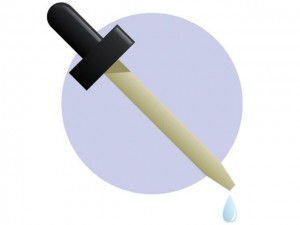Revisiting Immunization Program in Pakistan
Friday, January 6th, 2012 4:28:19 by Fayyaz Yaseen
Revisiting Immunization Program in Pakistan
Immunization is most cost effective health intervention against preventable diseases affecting the poorest of poor sections of society, said experts during a stocktaking and situation analysis meeting on “poverty and social impact
of expanded programme for immunization in Pakistan” organized by Sustainable Development Policy Institute (SDPI) here on Tuesday. They called for a comprehensive inquiry in to exploring linkages between health and poverty relationship and also the factors
that negatively influence health sector outcomes.
They said Pakistan has the second highest poverty level and the highest infant mortality rate in South Asia. The poorest of the poor segments of society have inadequate health service utilization and unhealthy sanitary and dietary
practices which subsequently causes them to have poor health status. This poor health status leads to diminished incomes making them further vulnerable to terminal diseases. They talked about very low percentage of birth registration and very low percentage
of vaccination card recall in Pakistan and said that polio campaign must derive from households instead of government push. They also demanded to make vaccination cards mandatory for admission in schools at kindergartens’ level and proposed to link polio campaign
with incentives for people.
The consultation was attended by representatives from Ministry of Finance, Planning Commission, World Health Organization (WHO), UNICEF, UNDP, World Bank, Extended Programme on Immunization Unit at National Institute of Health,
National Health Services Academy, Pakistan institute for Development Economics, civil society organizations, and members from medical community.
Dr. Vaqar Ahmed, Research Fellow at SDPI said that the stakeholders’ consultation is aimed to carry out institutional analysis, gauge expectation of stakeholders from poverty and social perspective and identify issues to discuss
with provincial administrations of Extended Programme on Immunization (EPI). Furthermore there is a need to identify and study the characteristics of those households now suffering from the lack of immunization.
Sajjad Shaikh, Joint Secretary and National Project Manager, Poverty Reduction Strategy Monitoring gave a detailed background on various social impact analyses carried out in Pakistan. He informed that Pakistan prepared its Poverty
Reduction Strategy Paper (PRSP) in 2001 and was the first country in 2003 to be graduated for IMF’s ‘Poverty Reduction and Growth Facility (PRGF)’. He said that Pakistan demonstrated well in polio immunization until 2004 but it’s a matter of concern the country
is still one of the polio-endemic countries in the world with rise of polio cases in recent years. He said 189 cases were reported in 2011 as compared to 144 in 2010. Deliberating on the need for Poverty and Social Impact Analysis (PSIA) of immunization programme
to gauge impacts of public policies especially on poor, he stressed on researchers to identify gaps with empirical evidences and recommendations for policy makers to improve health situation in the country.
Dr. Sofia Ahmed of Pakistan Institute of Development Economics (PIDE) highlighted current crisis in immunization and shared methodology of proposed study to analyze impacts of immunization programme in Pakistan. Citing experts,
she added polio cases in Pakistan are more than the combined total cases of other three endemic countries namely Nigeria, India and Afghanistan. She maintained success of extended Programme on immunization (EPI) is crucial, if we want a productive, active
and healthy future labour force. Establishing health and poverty linkages, she added the country has the second highest poverty level and the highest infant mortality rate in South Asia. She said that poorer segments of society have inadequate health service
utilization and unhealthy sanitary and dietary practices which subsequently causes them to have poor health status. This poor health status, she said, naturally leads to diminished incomes making them further vulnerable to terminal diseases.
Dr. Sofia stressed for a conceptual framework to link institutions that influence health sector outcomes. She described households, communities, healthcare system and government policies as various determinants of health sector
outcomes and maintained that linkages between these determinants are extremely important for evaluating the social and poverty impacts of any heath program. She also identified several gaps in already available limited literature such as lack of empirical
analysis, regional differences in impact of EPI, impact of floods/terrorism, political and cultural factors, and recommendations for existing EPI related policies.
During discussion, participants deliberated on the relevance, objectives, ground realities, cost effectiveness, and sustainability of any baseline study on the subject. They were told that in absence of any baseline survey or census,
study is carried out on estimated numbers which may lead to naïve results. They were also informed that accountability of polio programme is marred by lack of direction from federation at center and implementation caveats in provinces. Other issue highlighted
was the difficulty of tracing people on the move which makes it difficult to keep their immunization record.
Participants also observed that people in Pakistan mostly rely on private sector for health services whereas immunization services are only provided by public sector which can be another reason of non coverage of immunization along
with factors such as education, gender, age, religion, culture, family and community background, law and order, environment, climate and disasters.
Short URL: https://www.newspakistan.pk/?p=8351

















